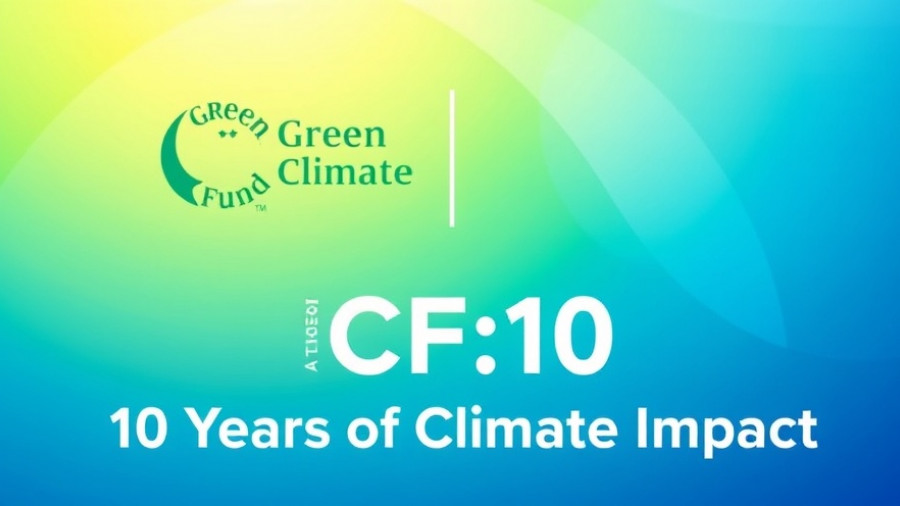
The Green Climate Fund's Historic Achievement in Climate Finance
The Green Climate Fund (GCF) has reached an impressive milestone in 2025, approving a record-breaking USD 3.26 billion for climate projects in developing countries. With the Board greenlighting 22 new projects, it marks the highest amount of funding approved in a single Board meeting, totaling USD 1.332 billion. This achievement underscores the GCF's commitment to fostering climate action, especially as the global community prepares for COP30 in Belem, Brazil.
Benefits of Climate Projects in Vulnerable Regions
The GCF's investment targets regions most affected by climate change, particularly Less Developed Countries (LDCs), Small Island Developing States (SIDS), and vulnerable African nations. This year, GCF has facilitated 50 projects that not only contribute to climate resilience but also promote renewable energy, reforestation, and sustainable land use. Such projects are crucial in regions that are often hit hardest by environmental changes and disasters.
A Strong Focus on Sustainability and Adaptation
Among the financed projects, several focus on adaptation strategies that support communities managing climate-related challenges. For instance, initiatives like the Dominica Community Resilience Enhancement Project aim to enhance local capabilities and reduce vulnerability to climate hazards. This dual approach—combined with mitigation strategies—highlights the GCF's integral role in global climate finance.
Partnerships and Community Impact
A key aspect of GCF's success is its ability to attract private sector funding, showcasing the Fund's capability to mobilize additional resources for climate projects. Co-chair Leif Holmberg noted that significant private investments are essential for tackling climate challenges effectively, and GCF is positioning itself as the preferred partner for developing nations seeking financial aid for climate action.
The Role of Direct Access Entities
Excitingly, the GCF also accredited Direct Access Entities from various nations this year, including Trinidad and Tobago, Kazakhstan, Tunisia, and Vanuatu. This strategic move allows these countries to take ownership of climate initiatives, ensuring that funds are managed locally to meet specific needs. Such an approach is essential for achieving tailor-made solutions that resonate with local communities experiencing the effects of climate change firsthand.
Looking Ahead: COP30 and Future Initiatives
As the GCF heads towards COP30, its recent accomplishments signal a dedicated path towards more impactful climate financing. The USD 3.26 billion achievement positions the Fund not just as a financier but as an essential partner committed to climate justice and equitable development. Projects, such as the Jordan-Aqaba water desalination initiative, exemplify GCF’s forward-thinking approach to providing sustainable solutions that serve vital needs in water-scarce regions.
In conclusion, the GCF's ability to channel substantial funds towards the most climate-vulnerable communities underscores its crucial role in global climate strategies. As we prepare for the next climate discussions at COP30, it is essential to emphasize the ongoing necessity for targeted support and innovative financing solutions that empower communities to combat climate adversities.
 Add Row
Add Row  Add
Add 




Write A Comment